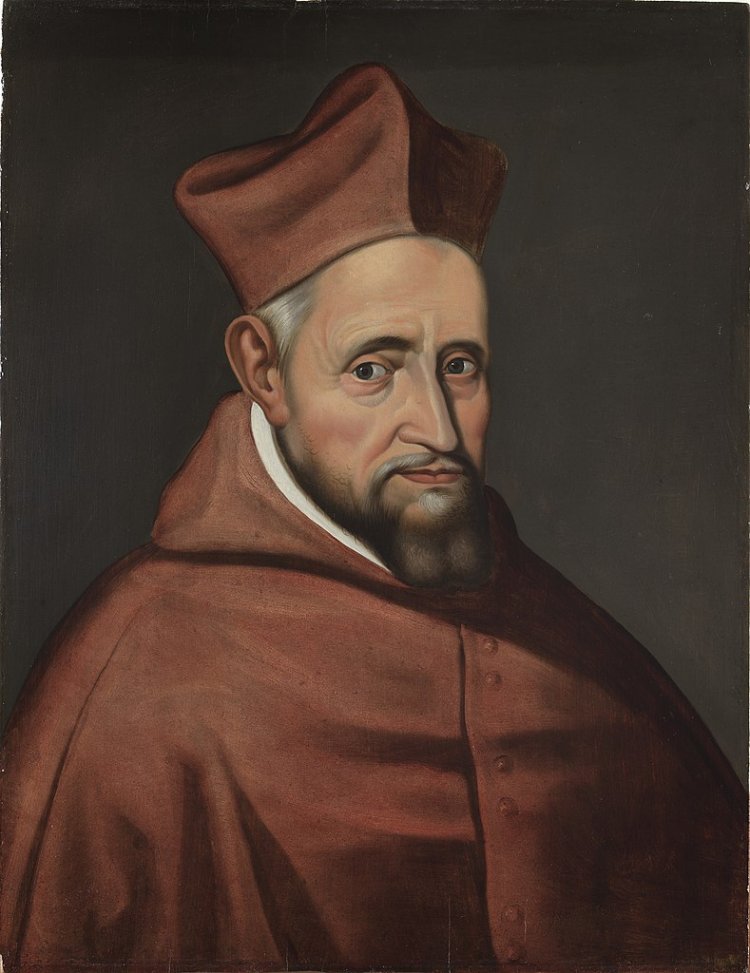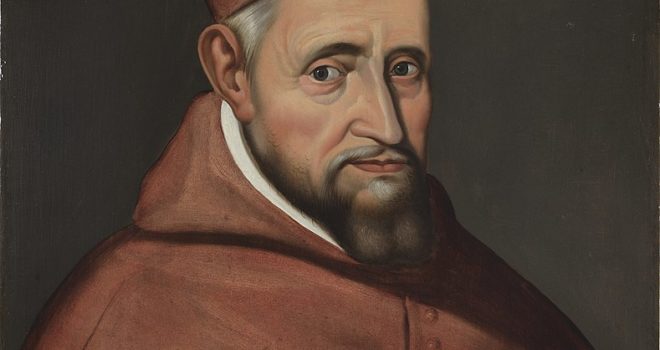St. Robert Bellarmine (Bishop and Doctor)
St. Robert Bellarmine (1542-1621) played a major role in the Catholic Reformation. Born in Italy, he was ordained a priest in the Jesuit Order in 1570. He taught as a professor at the University of Louvain in Belgium, while devoting himself to the study of Scripture and Church history, and he defended the authority of […]



St. Robert Bellarmine (1542-1621) played a major role in the Catholic Reformation. Born in Italy, he was ordained a priest in the Jesuit Order in 1570. He taught as a professor at the University of Louvain in Belgium, while devoting himself to the study of Scripture and Church history, and he defended the authority of the Church against the attacks and counterclaims of the Protestants.
Robert tried to take a moderate approach to the issues of the day. He upheld the Church’s position and pointed out Protestant errors, but in a way which relied upon persuasion, not polemics. He argued against the “divine right of kings” — the belief that royal authority comes directly from God. He thereby indirectly promoted the possibility of modern democratic thought, angering the kings of England and France in the process.
Robert was assigned to the Roman College in 1576, and became its rector in 1592. In 1597 Pope Clement VIII made him a cardinal because, as he said, “he has not his equal for learning.” Bellarmine served as the archbishop of Capua from 1602-1605, and was the first to establish seminaries there for the training of future priests.
It was Robert who admonished Galileo when it seemed the astronomer’s theories were in conflict with Scripture (though he actually defended Galileo from even harsher critics, and remained personally friendly with him). St. Robert Bellarmine died in Rome on September 17, 1621, and was later canonized and declared a Doctor (an eminent and reliable teacher) of the Church.

From Johnnette Benkovic’s Graceful Living: Meditations to Help You Grow Closer to God Day by Day
Prosperity and adversity, wealth and poverty, health and sickness, honors and humiliations, life and death, in the mind of the wise man, are not sought for their own sake, nor avoided for their own sake. But if they contribute to the glory of God and your eternal happiness, then they are good and should be sought. If they detract from this, they are evil and must be avoided.
— St. Robert Bellarmine, On the Ascent to the Mind of God
What current joy and what current sorrow has God permitted me to contribute to my good?
Other Saints We Remember Today
- The Imprinting of the Stigmata of St. Francis of Assisi (1224)
- St. Hildegarde (1179), Abbess














